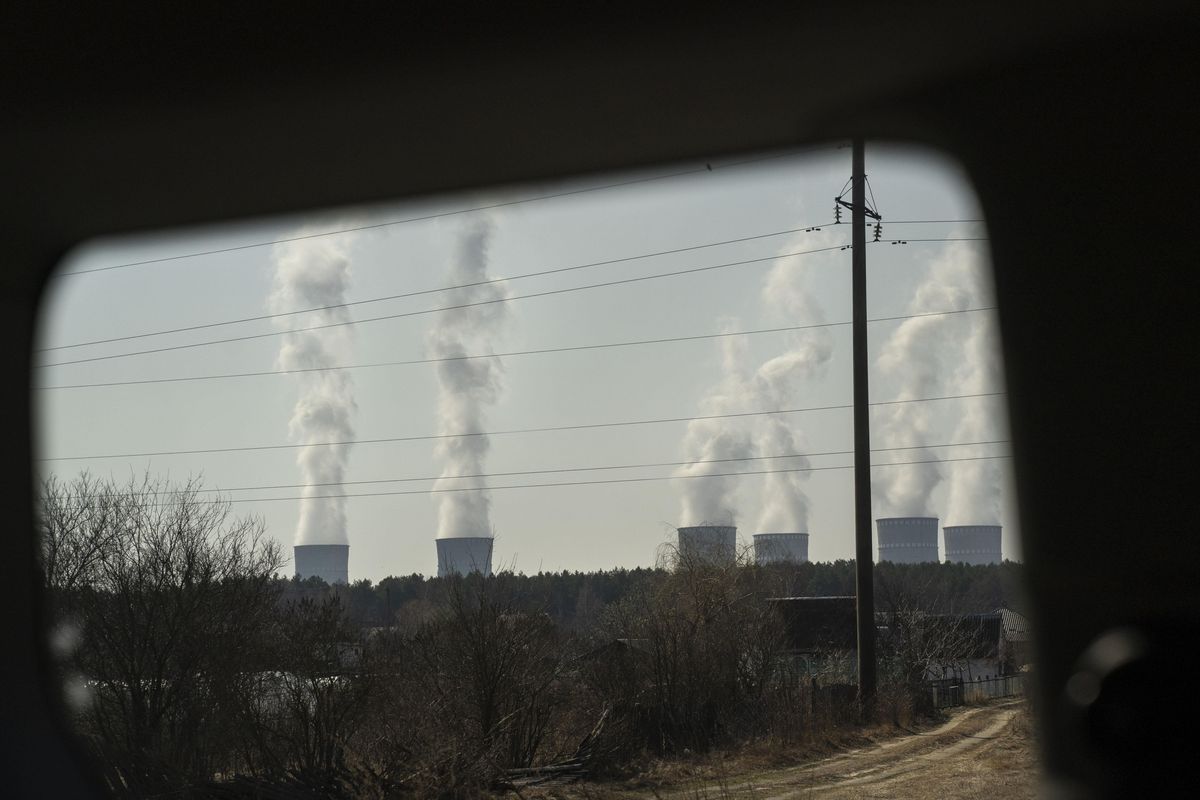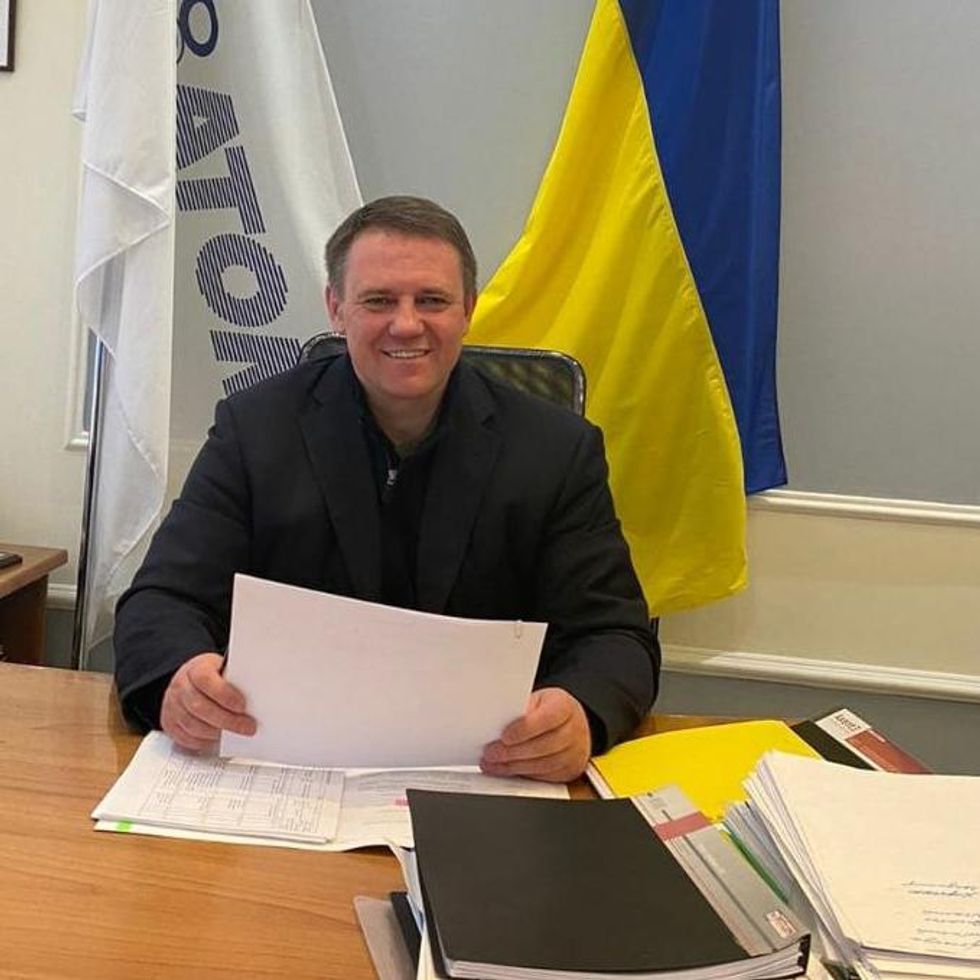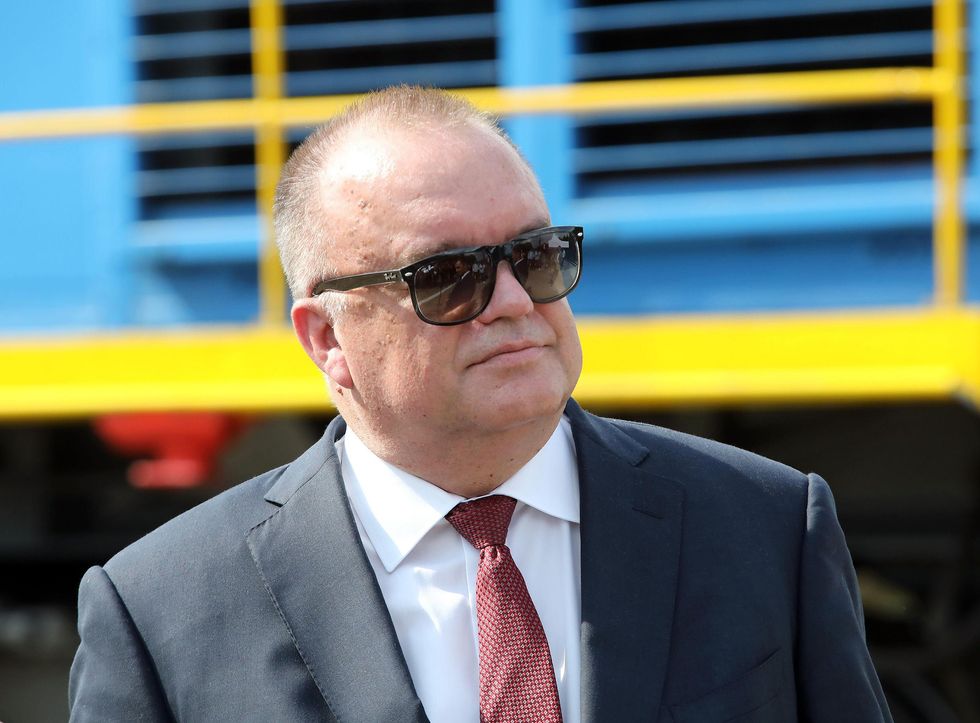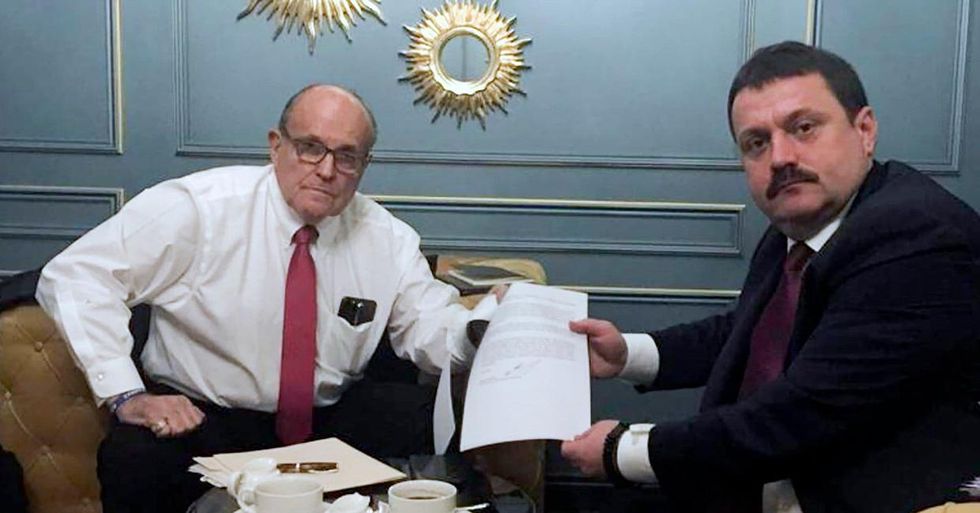

Russia has committed unprecedented acts of nuclear terrorism at Ukraine’s nuclear power plants. In March, Russia’s seizing of the Zaporizhzhia power plant—Europe’s largest—veered dangerously close to disaster. Since then, Zaporizhzhia’s grounds and even its turbine halls have been used to shelter troops, military equipment, and munitions. Russia has also fired cruise missiles over two more nuclear power stations.
Still, recent evidence suggests that a more opaque threat may also be stalking Ukraine’s four nuclear generating stations: a cloak-and-dagger struggle for control of state nuclear energy firm Energoatom, pitting activist nuclear professionals against alleged Russian agents.
It’s an unstable situation that—like Russia’s military actions—increases the risk of accidents that could spread radiation across Europe and threatens Ukraine’s ability to defend itself. Ukraine's 15 reactors generate over half of its electricity and, thanks to Ukraine’s rapid postinvasion synchronization with Europe’s power grid, the government is ramping up exports to finance the war.
Already Ukraine faces the loss of Zaporizhzhia’s power generation, with Russia vowing to hold the surrounding territory indefinitely and rebuilding wrecked transmission lines to reroute its power to occupied Crimea.
 Oleg Boyarintsev is here, back at work after detention and questioning by Ukrainian counterintelligence agents. Energoatom
Oleg Boyarintsev is here, back at work after detention and questioning by Ukrainian counterintelligence agents. Energoatom
The murky internal battle for Ukraine’s nuclear power popped into sight briefly in late March when a few Ukrainian news outlets and IEEE Spectrum reported that Ukrainian counterintelligence officers had detained and questioned Energoatom director of personnel Oleg Boyarintsev. That cast a shadow over officials across Energoatom that Boyarintsev had appointed.
The conflict quickly slipped back behind the scenes when other journalists judged the divisive issue unripe for covering while Ukraine struggled to contain Russian advances.
But Energoatom and its leadership are back in the spotlight. Battle lines have stabilized, and President Volodymyr Zelenskyy is leading a campaign to out Russian agents. This month Zelenskyy affirmed pervasive infiltration of Ukraine’s state security service, the SBU, which has officials implanted at Energoatom headquarters and its plants.
At the same time, moves by SBU counterintelligence agents, deputies in Ukraine’s parliament, and company officials have heightened concerns about the security and safety of Energoatom’s operations.
SBU spy hunters said they pierced an “extensive agent network” last month allegedly led by Boyarintsev’s longtime political patron and business partner Andriy Derkach, whom the SBU and U.S. intelligence agencies say is a Russian agent.
Then, early this month, Energoatom CEO Petro Kotin stunned a panel of deputies probing Energoatom personnel issues. Asked why Boyarintsev was not present as requested, Kotin told the energy committee he had the day off. Then Kotin gave contradictory answers when asked why he recently dismissed the director of the Rivne Nuclear Power Plant, which lies just under 60 kilometers from Belarus and is the largest still under Ukraine’s control.
 Under CEO Petro Kotin, Energoatom has faced repeated accusations of corruption and sliding back toward Russian influence. Ukrinform/Alamy
Under CEO Petro Kotin, Energoatom has faced repeated accusations of corruption and sliding back toward Russian influence. Ukrinform/Alamy
Kotin said Rivne’s director was suspected of hiding safety violations. At the same time Kotin insisted he was also needed to run the subsidiary racing to start up a facility to store spent nuclear fuel that was previously sent to Russia. Without the storage facility, Ukraine can’t refuel its reactors, prompting the panel’s chair to note that Kotin assigned an allegedly dodgy official a surprisingly critical mission.
Ukrainian news site Glavcom’s take from the hearing was that Ukraine’s nuclear plants were “in danger,” and that a “hunt for collaborators” was on. The panel’s deputy chairman concurred, posting that “Russian ears are sticking out now from all sides.”
Codename “Veteran”
Energoatom did not respond to IEEE Spectrum’s requests to reach Boyarintsev and Kotin. But back in March, the firm attacked its loudest critic, Olga Kosharna, a former advisor to Ukraine’s nuclear regulator. Energoatom said it was Kosharna who was under Russian influence and spreading Russian disinformation.
A defamation suit filed by Kosharna against Energoatom will be heard in October according to her lawyer, who heads the energy-law committee for Ukraine’s bar association.
Kosharna maintains her March 2022 claim that officials planted by Boyarintsev facilitated the Zaporizhzhia plant’s seizure, including a new plant director appointed eight days before the 24 February invasion. In exchanges with IEEE Spectrum this week, she extended that allegation to include Alexander Prismitsky, an SBU officer serving as the plant’s deputy director for physical protection, who she said is the subject of an SBU investigation.
Boyarintsev did not act alone, according to Kosharna. Andriy Derkach, a Russian agent codenamed “Veteran” according to the SBU, is suspected of directing his work at Energoatom. Derkach is a long-serving Ukrainian deputy, a media owner and pro-Russian media commentator, and a former Energoatom CEO. His whereabouts are unknown since the invasion.
Derkach gained global notoriety delivering kompromat on U.S. President Joe Biden in 2019. In spite of that, he is widely credited with driving Boyarintsev’s inclusion when Zelenskyy appointed Kotin and a new leadership team in 2020. Why else, ask people like Kosharna, could someone with unsavory associates in organized crime win a job so crucial to Ukraine’s security?
 Alleged Russian spy Andriy Derkach [right] meeting in Kiev with former President Trump’s lawyer Rudy Giuliani in 2019.Andriy Derkach
Alleged Russian spy Andriy Derkach [right] meeting in Kiev with former President Trump’s lawyer Rudy Giuliani in 2019.Andriy Derkach
Since Kotin’s team arrived, journalists, activists, and government watchdogs have documented a series of suspicious activities at Energoatom, including the dumping of electricity on the market, the illegal dismissal of Energoatom’s independent anticorruption official, and embezzlement of funds for the spent-fuel repository.
Meanwhile, international and domestic experts have noted a slide back toward Russian influence over Ukraine’s Russian-designed and largely Russian-serviced nuclear plants. Ukrainian security analyst Pavel Kost, who several years ago praised Energoatom as one of the “quiet heroes” of post-Yanukovich Ukraine, last year called out the growing influence of “pro-Russian circles” and “silent sabotage” of crucial projects such as the spent-fuel repository.
It’s no surprise then that over half of Ukraine’s parliamentarians called last year for new leadership to improve Energoatom’s operations and assure nuclear safety. Transparency International followed up with a similar call, telling Zelenskyy that a “criminal group” was running Energoatom.
Jeff Merrifield, a former U.S. Nuclear Regulatory Commission member and international nuclear consultant, likened the situation facing Ukraine’s nuclear plants to a ”multilayer set of chess.” While he declined to address the specific accusations against Energoatom leaders, Merrifield said they “were not entirely surprising” based on some of the “unsavory” activity he’s observed in 20 years of work in both Ukraine and Russia.
Kosharna, meanwhile, is not the only Ukrainian professional asking tough questions. When asked if many nuclear staff in Ukraine are concerned about Russian agents, Women in Nuclear Ukraine founder Margaryta Rayets messaged IEEE Spectrum that, “Russia did its best in terms of the lobbying its interests by attracting its agents into all the spheres! So, our task for today is to detect them all as soon as possible.”
Rivne on the edge
The loudest critical voice among engineers and scientists (at least in writing) is Georgiy Balakan, a former top Energoatom engineer who led collaborations with U.S. national labs, Westinghouse Electric, and European agencies to upgrade safety at Ukraine’s plants. Since April he has posted a series of risk assessments, warnings, and questions aimed at securing Ukraine’s nuclear plants against internal and external attack.
On 10 July, Balakan posted a pointed essay titled “How to avoid nuclear ‘Bucha’ at the nuclear power plants of Ukraine?”—a reference to Russian forces’ scorched-earth devastation of Bucha that shocked the world in April. In it he calls for terminating senior plant officials who are past or present SBU officers, a moratorium on dismissing plant directors, and more.
The panel’s deputy chairman concurred, posting that “Russian ears are sticking out now from all sides.”
An accompanying post emphasized the risks facing the Rivne station. Balakan warns that Russia could seize Rivne via an airborne assault, noting increased Russian activity nearby in Belarus and stepped-up airborne training.
Balakan also argued that the attacks on Rivne's director, Pavlo Pavlyshyn, weaken Rivne by demoralizing plant personnel. Energoatom officials scattered from its headquarters when Russian troops and missiles surged over the border in February and March, but Rivne’s embattled director stood his ground, meeting journalists to condemn Russia’s irresponsible nuclear aggression and garnering international support for Ukraine’s nuclear installations.
“From the first days of the war, his steadfast patriotic position united everyone,” agreed the City Council of Varash, Rivne’s satellite city, in a recent appeal to Zelenskyy to stop the plant’s “destabilization.” The letter echoed Balakan’s concerns about a “high probability of an armed attack,” and disputed Kotin’s allegations against Pavlyshyn and the plant’s safety.
Ilona Zayets, a journalist and former Energoatom communications aide, told IEEE Spectrum this week that Kotin and his supporters “need to discredit” Pavlyshyn before he gets to Zelenskyy, because Pavlyshyn has the inside scoop on Energoatom’s troubled projects.
If she’s right, they may be too late. Pavlyshyn posted a video this week suggesting that he’s already working against Kotin: ”Dear curators of my resignation. Your involvement in unlawful actions not in the interests of the Ukrainian state will certainly be exposed.”
Reference: https://ift.tt/nMO7tuR
No comments:
Post a Comment